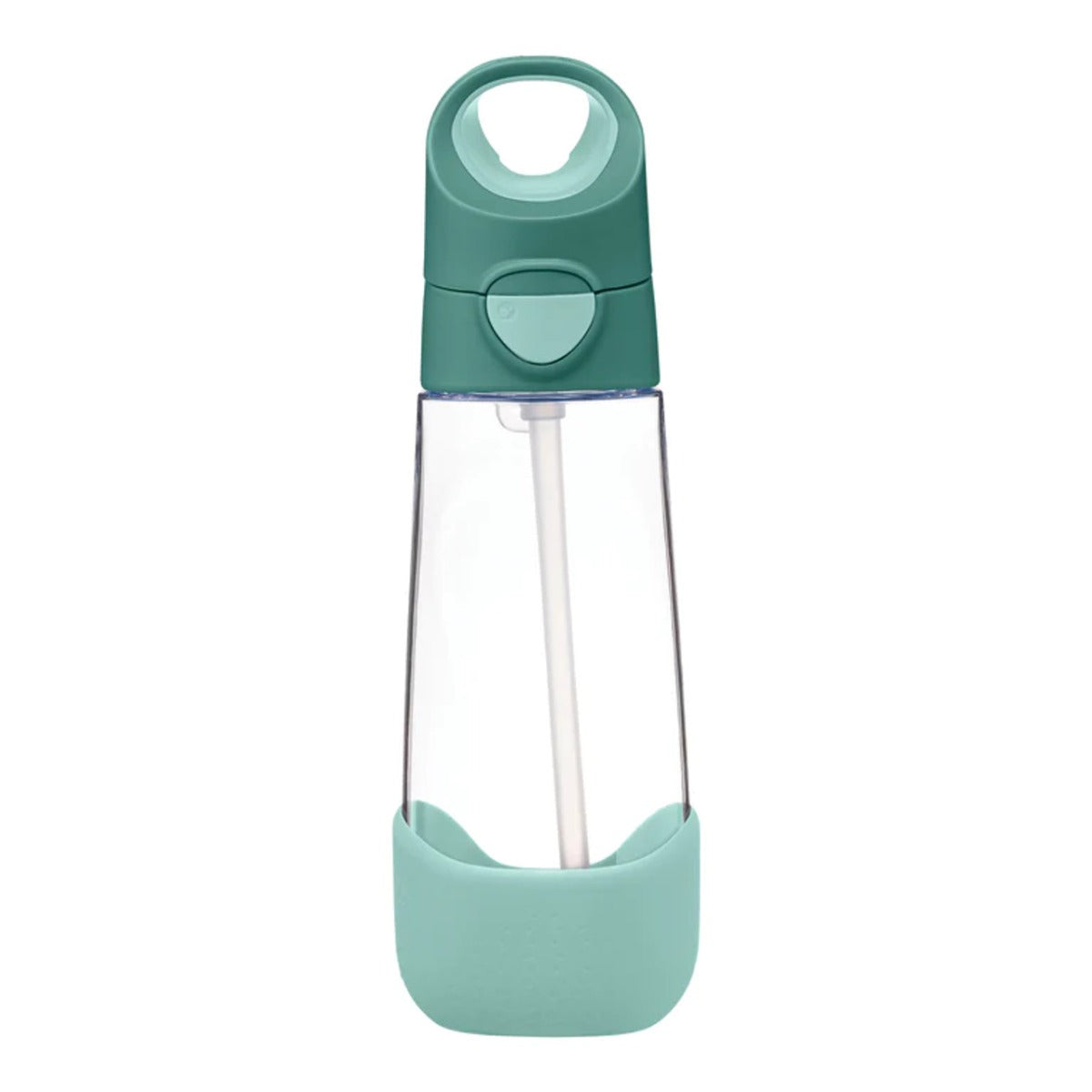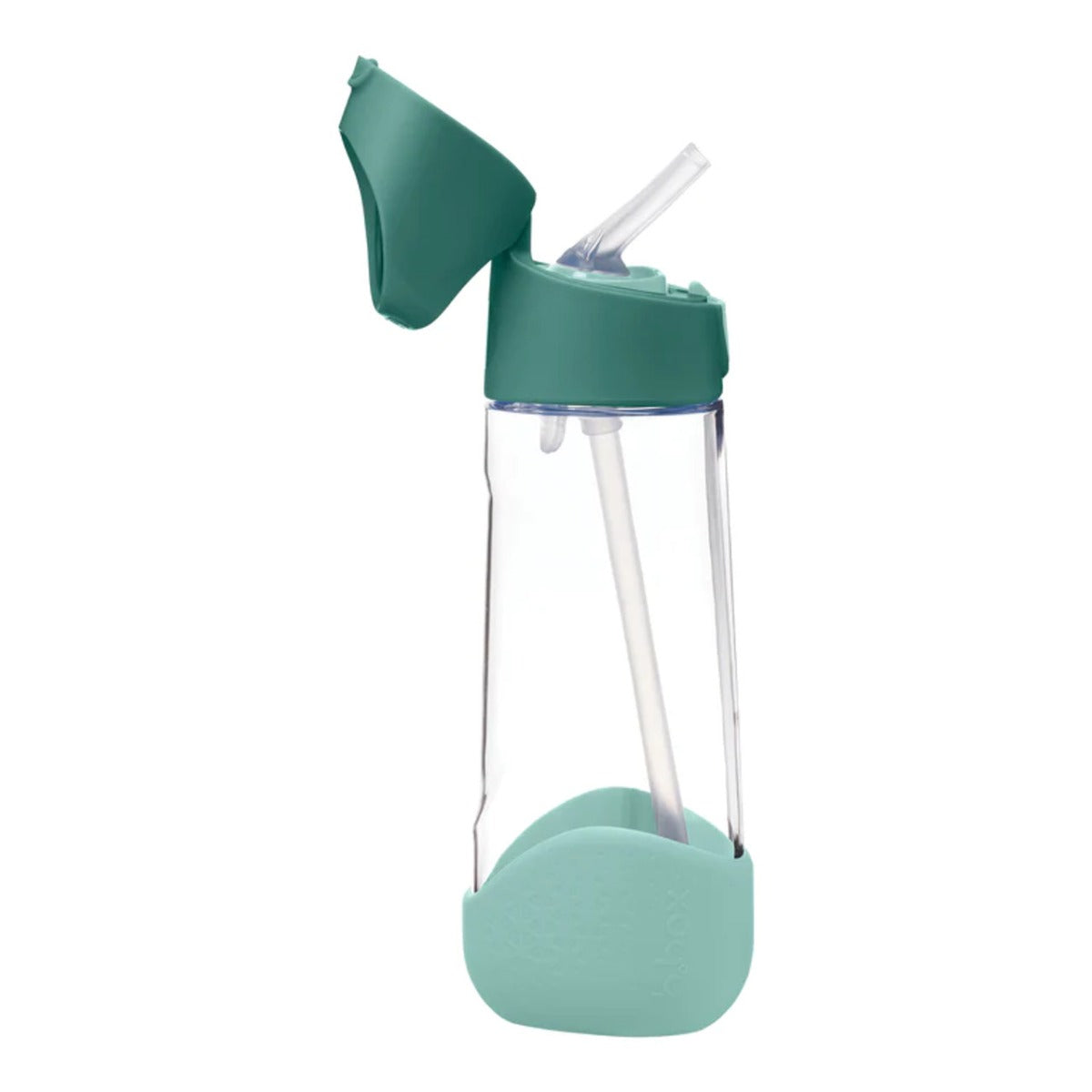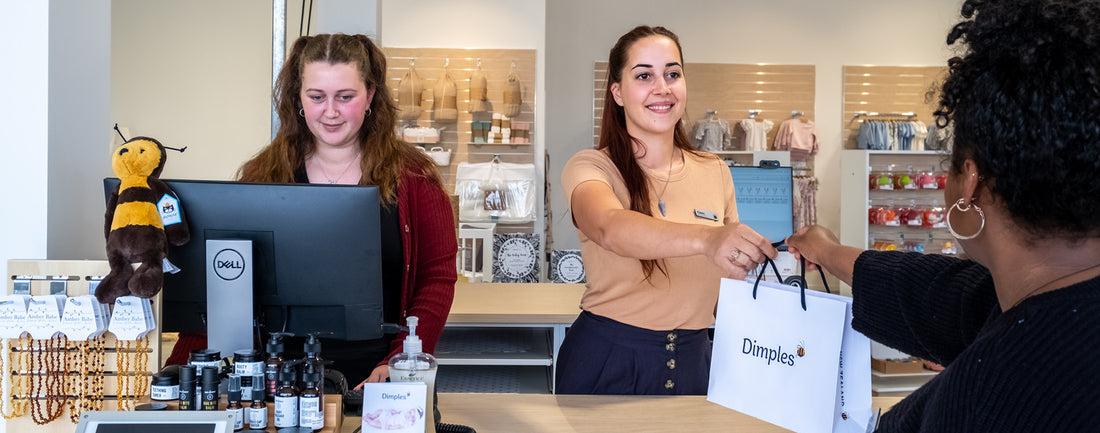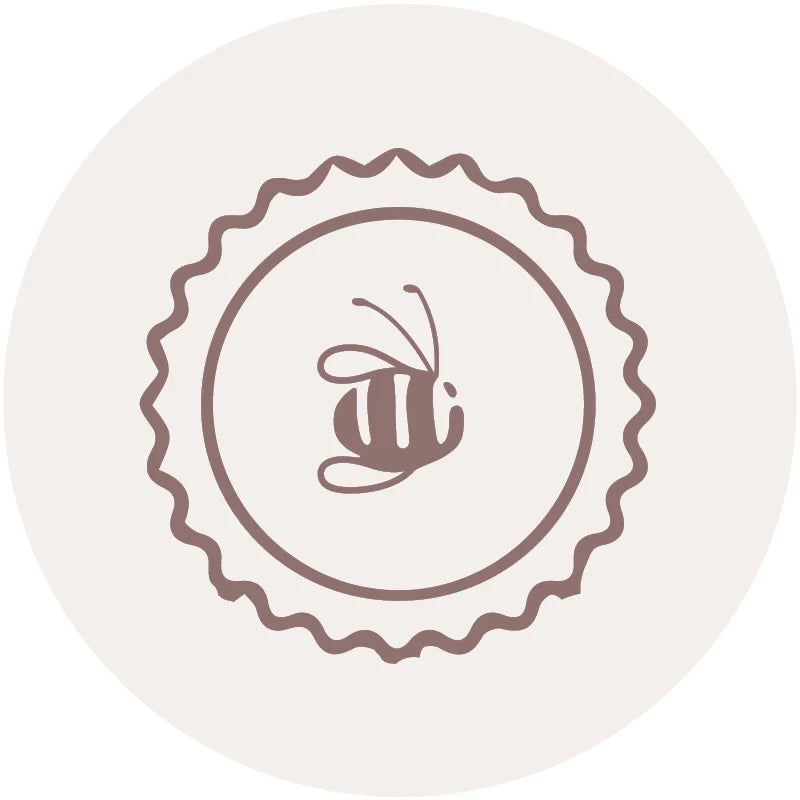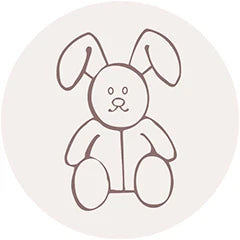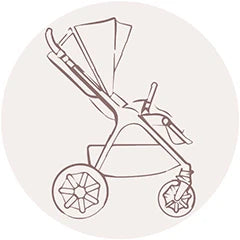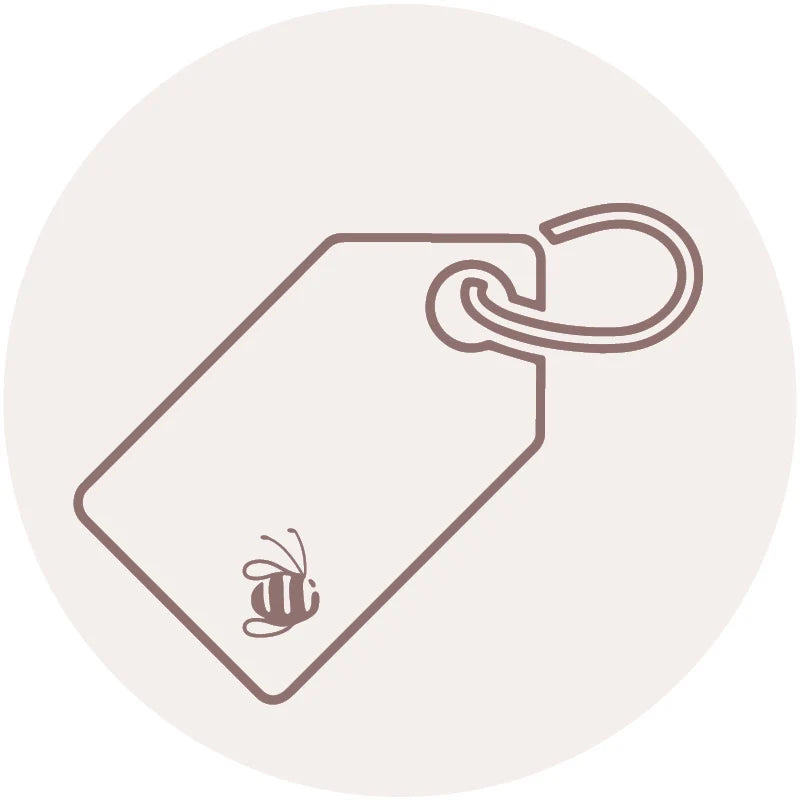B.Box Tritan Drink Bottle - 600ml
B.Box Tritan Drink Bottle - 600ml
SKU:122932
Clothing Prem to 18 Months
| Size | Age Guide | Weight | Height |
|---|---|---|---|
| Premature | Premature or Small Newborn | Up to 4Kg | Up to 55cm |
| Newborn | 0-3 months | 4-6Kg | Up to 62cm |
| 3 Month | 3-6 months | 6-8Kg | Up to 68cm |
| 6 Month | 6-12 Month | 8-10Kg | Up to 76cm |
| 12 Month | 12-18 Month | 10-12Kg | Up to 84cm |
| 18 Month | 18-24 Month | 12-14Kg | Up to 92cm |
Clothing 2 to 6 Years
| Size | Age Guide | Height | Chest | Waist | Hip |
|---|---|---|---|---|---|
| 2 Year | 2-3 Years | Up to 100 cm | 56 | 51 | 58 |
| 3 Year | 3-4 Years | Up to 105 cm | 58 | 53 | 60 |
| 4 Year | 4-5 Years | Up to 110 cm | 60 | 55 | 62 |
| 5 Year | 5-6 Years | Up to 115 cm | 62 | 57 | 64 |
| 6 Year | 6-7 Years | Up to 120 cm | 64 | 59 | 66 |
Beanie Size Guide
| Size | Head Circumference | Age Guide |
|---|---|---|
| Premature | 31-35 cm | Premature or Small Newborn |
| Newborn | 35-40 cm | Newborn |
| Small | 40-43 cm | 3-6 Months |
| Medium | 43-47 cm | 6-18 Months |
| Large | 47-52 cm | 18-3 Years |
Sunhat Size Guide
| Size | Head Circumference | Age Guide |
|---|---|---|
| Newborn | 37-40 cm | Newborn |
| Small | 40-43 cm | 3-6 Months |
| Medium | 43-46 cm | 6-12 Months |
| Large | 46-49 cm | 12-24 Months |
| Xtra Large | 49-54 cm | 2-4 Years |
Sleep Pods Size Guide
| Size | Weight | Age Guide | Measurement(Back to Hem) |
|---|---|---|---|
| Newborn | 0-6 kgs | 0-3 Months | 60.5 cm |
| Small | 0-8 kgs | 3-6 Months | 66 cm |
Booties Size Guide
| Size | Age Guide |
|---|---|
| Newborn | 0-3 Months |
| Small | 3-6 Months |
| Medium | 6-12 Months |
| Large | 12-18 Months |
Pretty Brave Baby
| Foot Length (mm) | Insole Length (mm) | EU | UK | Age | INT |
|---|---|---|---|---|---|
| 95-104 | 110 | 16/17 | 2 | 0-6m | S |
| 104-114 | 118 | 18 | 3 | 6-12m | M |
| 114-123 | 127 | 19/20 | 4.5 | 12-18m | L |
| 123-137 | 142 | 21/22 | 5.5 | 16-22m | XL |
Pretty Brave 1st Walker
| Foot Length (mm) | Insole Length (mm) | EU | UK | Age |
|---|---|---|---|---|
| 114-120 | 125-128 | 19 | 3 | 1 yr |
| 120-126 | 132-135 | 20 | 3.5 | 1-2 yrs |
| 126-132 | 138.5-141.5 | 21 | 4.5 | 1-2 yrs |
| 132-138 | 145-148.5 | 22 | 5 | 2 yrs |
Crywolf Swim Nappy
| Size | Length (waist to crotch) | Crotch Width (side to side) |
|---|---|---|
| 0-1 yr | 1-2 yrs | |
| 37 | 38 | |
| 14.5 | 15.5 |
Crywolf Rash Suit
| Size | Length (back neck to crotch) | Chest (arm to arm) | Waist (side to side) | Sleeve (neck to cuff) | Neck Opening(diameter) |
|---|---|---|---|---|---|
| 6-12 Months | 1 yr | 2 yrs | 3 yrs | ||
| 40 | 42 | 44 | 46 | ||
| 25 | 26 | 27 | 28 | ||
| 24 | 25 | 26 | 27 | ||
| 30 | 31.5 | 33 | 34.5 | ||
| 13.25 | 13.25 | 13.8 | 14.3 |
In stock
Couldn't load pickup availability
Overview
Overview
Keep your growing little one happily hydrated all day with the Big Kids 600mL Drink Bottle, thoughtfully designed for comfort, independence, and everyday adventures.
Its smart triangular shape fits perfectly in small hands, making it easy for your child to hold whether they’re at kindy, school, or on the go. The push button lid pops open smoothly, keeping the straw clean and ready to use, and the spill proof bite valve helps prevent leaks in school bags. Plus, the angled silicone straw means they can sip every last drop with ease.
Key Features
Key Features
Technical Specification
Technical Specification
Delivery and Returns
Delivery and Returns
- Delivery: Free within NZ on orders over $100 (excluding bulky items) or $8 standard shipping
- Returns: Accepted within 14 days of receipt with proof of purchase
- Some items are excluded from returns including sale items, hardware, car seats, prams, monitors and personal items - please click here for the full list.
Share this product
Recently Viewed Products
Related Blogs
Introducing Our Virtual Shopping Service
As a busy parent it can be hard to find the time to get out to the shops. Or perhaps you’re in hospital post-birth and realise you need some more essentials in tiny sizes. Of course there’s always the option to shop online, but sometimes that just doesn’t cut it. Perhaps you want to see a product in action, or ask a question, or get advice . . . You can now book in to have a video call with our in-store team. They can show you close ups, give you a demo or help you choose when you’re confused by all the options. It’s the perfect option for busy parents. And we’ve made it easy with an ONLINE BOOKING SYSTEM . Book a Virtual Shopping Appointment Here's why our virtual shopping service is a game-changer: Personalized Assistance: Need help finding the right stroller, cot, or baby monitor for you? Our team of knowledgeable experts can help. Virtual Tours: Explore our store virtually with guided tours led by our experienced staff. From nursery furniture setups to the latest babywear arrivals, our virtual tours give you an immersive shopping experience without leaving your home (or birthing unit). Shop with confidence: Once you've made your selections, you’ll have the peace of mind to buy online. Then you can have your purchase delivered to your door or arrange a Click & Collect. Whether you're a first-time parent or a seasoned pro, we're here to make your parenthood journey a little bit easier. Embrace the convenience of our virtual shopping service and enjoy a stress-free shopping experience like never before.
Learn moreReady to Pack your Beach Bag with Us?
Beach Days Made Easy ☀️ Summer’s here — and if you’re heading to the beach with a baby in tow, you’ll know that travelling light is officially a thing of the past. Gone are the days of throwing a towel and book in a tote and calling it a day. But the good news? Dimples has you covered with all the practical, beautiful beach day essentials to keep your little one protected, comfy, and stylish — and make your life just a little bit easier. 🎒 Pretty Brave Stella Baby Bag The Stella Baby Bag from Pretty Brave is the kind of multitasking hero that every parent needs. Spacious enough to carry all your beach-day essentials, yet stylish enough to double as your weekend bag, it’s designed for real life — sand and all. Inside, you’ll also find a padded change mat that makes those on-the-go nappy changes a breeze. Pack everything from snacks and sunscreen to spare togs and toys — there’s room for it all, without feeling bulky or overstuffed. 🏖️ Wildride Toddler Carrier Ditch the bulky buggy and embrace beach freedom with the Wildride Toddler Carrier. Whether you're navigating sandy paths or just don’t want to wrestle a pram through the dunes, this stylish hip carrier is a smart alternative for toddlers aged 9 months to 4 years (up to 20kg). Ergonomic, compact, and quick to throw on, it offers support without the strain - perfect for when little legs get tired or you’re trying to keep both hands free. Bonus: it folds up small and easily fits into your beach bag when not in use. 🌊 Crywolf Baby & Kids Swimwear Splash-ready and sun-smart, Crywolf swimwear is a go-to for little adventurers. Each piece is made from recycled fibres, offering high protection from the sun while being gentle on the planet. The prints are playful, the coverage is practical, and the quality is built to last - so you can focus on the fun knowing your child is comfy, covered, and looking cute as ever. 🕶️ IZIPIZI Sunglasses Keep those little eyes protected in style with IZIPIZI sunglasses. With 100% UV protection, these sunnies aren’t just adorable — they’re essential for sunny days, whether you’re at the beach, on a walk, or relaxing in the backyard. Available in sizes for babies right through to big kids, IZIPIZI offers thoughtful, lightweight designs that stay on (yes, even on the wriggly ones) and suit every stage. 🌞 Nude Alchemist SPF30 Natural Sunscreen This gentle, broad-spectrum SPF30 sunscreen is specially formulated for delicate skin — making it a family beach bag essential. The Nude Alchemist Natural Sunscreen is made with non-nano zinc oxide for effective sun protection, plus nourishing natural ingredients like shea butter and jojoba oil to soothe and hydrate. Free from harsh chemicals, parabens, and artificial fragrances, it’s safe for babies aged 3 months and up. It’s also reef-safe, water-resistant, and rubs in smoothly with minimal whitening. Just good, honest sun care you can feel great about. 🐚 Over the Dandelions Hooded Muslin Towel Wrap your little one in soft, breathable comfort after a splash in the sea. The Over the Dandelions Hooded Muslin Towel is made from 100% GOTS-certified organic cotton muslin — lightweight, absorbent, and quick-drying, even on those humid summer days. Its generous size and gentle texture make it perfect for drying off, cuddling up, or providing a little shade on the walk back to the car. A must-have for warm-weather adventures. 👒 Dimples Sunhat No beach kit is complete without a good sunhat, and Dimples makes this essential extra lovely. Designed with a wide brim to help shade baby’s face and eyes, these hats are made from soft, breathable fabrics in timeless colours and textures that mix and match effortlessly. Cute, comfy, and protective — it’s the kind of hat you’ll reach for every time you head outdoors. ☀️ Ready, Set, Sun Whether you’re headed to the coast, the local splash pad, or just your own backyard, Dimples has everything you need to make the most of summer with your little one. Thoughtfully chosen, beautifully made, and ready for real life. Pop in-store or browse online to build your ultimate beach day kit — we’ll help you pack like a pro.
Learn moreSummer smart, right from the start
Keeping little ones safe this summer After a long, cold, virus-heavy winter, many parents will be looking forward to summer – warmer days, fewer illnesses, and time outside with the kids. But after last year’s record-high temperatures, it’s important to remember that summer has dangers too. Babies, with their delicate skin and inability to regulate temperature, are particularly sensitive to harsh sun and heat. Make sure you’re aware and prepared before summer starts, so you can protect your wee ones – no matter how hot it gets. Here’s our summer safety toolkit: Safer with sunscreen Babies and small children have delicate skin that burns easily, so sunscreen is a non-negotiable in the summer months. Even if your children hate the application process, it’s still something that has to be done. If you make it a regular part of their morning routine, they’ll get used to it eventually. • Choose a broad-spectrum sunscreen with SPF30+ at minimum. • Apply sunscreen at least 15 minutes before you go outside, and remember to reapply every 3-4 hours. • Use plenty – apply sunscreen thickly, and don’t miss areas like the back of the arms or ears. • Keep bottles of sunscreen everywhere – the car, the baby bag, grandparents’ house – so you’re never caught without it. • Don’t forget sunscreen on cloudy days – 80% of rays penetrate through cloud cover, so you can still get burnt. Buy the Made 4 Baby SPF50 Natural Sunscreen HERE . Shade solutions Sunscreen is a must if you’re out in the sunshine, but it’s not the only way to prevent sunburn or overheating. Staying indoors or in the shade during the hottest part of the day helps you avoid the heat altogether while dressing appropriately keeps you – and your children – safe and comfortable. • Try to avoid the sun between 11am-4pm, when UV rays are strongest. • Dress your children in loose, dark-coloured or UV-protective clothing and swimwear – the sun’s rays can penetrate light, thin fabrics. • Choose long-sleeved swimwear. • Make sure your babies and children always wear hats – full brim is best. • Use a sunshade or cover for your pram – but make sure it’s not preventing airflow to your baby, or she could overheat. • Use a shade cloth or stick-on shade in the car, to keep your baby’s seat out of the sun. Check out our range of Cotton Products Here Overheating and hydration During the summer months, it’s important to keep babies and children hydrated and cool as much as possible. Because they’re less developed than adults, babies and small children can’t regulate their body temperature properly, which means they’re more susceptible to overheating. During record high temperatures, overheating and dehydration can be a real concern for smaller babies. Although it’s less common in New Zealand’s fairly temperate climate, babies have died of heat exhaustion in extreme weather • Keep small children indoors, preferably with air conditioning on, during very high temperatures. • Make sure children drink plenty of fluids – homemade ice-blocks are a great way to get more liquid into them. • Give breastfed babies more frequent feeds – your milk will naturally be less concentrated to keep your baby hydrated. Drink more water yourself. • Bottle-fed babies should also be given more feeds – you can offer small amounts of water if you’re concerned about dehydration. • Dress babies and children lightly for sleep, and use a fan or air conditioning to keep the temperature in their room down. • Never leave a baby or child alone in the car, as temperatures can rise extremely rapidly. • If your baby or child is showing signs of dehydration or heatstroke – including lethargy, a dry mouth, fewer wet nappies, or a sunken fontanelle – seek medical treatment immediately. If it all sounds a bit alarming, don’t worry. Summer should be a time of fun and relaxation, even when you do have small children. As long as you’re aware and well prepared, you – and your wee ones – should be fine. Don't Forget the Sunscreen! Buy Sun Lotion Here
Learn moreHealthy Eating - Kids in the kitchen
Kids in the kitchen – building a foundation of health I am hugely passionate about building a strong foundation of health for children, so that they don’t spend a large chunk of their lives attempting to undo bad habits or with chronic health conditions. One really impactful way to do this is to teach them how to cook nutritious home cooked meals from scratch. This builds confidence in the kitchen and is an incredibly valuable life skill to have so that when they eventually leave home they know how to cook and won’t need to rely on takeaways and nutritionally poor foods. It is also a really nice way to mindfully spend time with your children in a way that is really fun for the whole family. There is continually more emphasis being placed on the importance of teaching children to eat healthy nutritious foods, due to the prevalence of childhood obesity, the behavior and learning implications of nutritional deficiencies and obesity related health issues. Did you know that one in nine of our New Zealand children are classified as being obese? Our childhood obesity rates really highlight the importance of education for children about nutrition and how to cook homemade meals. As a parent it is often a battle to get children to eat healthy foods, they are inundated with advertising and clever marketing that promotes and encourages less than ideal foods, such as sugar laden cereals and juices with their favorite cartoon characters, or sports heroes on the packaging. It is everywhere you look, and in our busy modern society takeaways have become the norm and not just a treat anymore. As a busy mum of four myself I have felt plenty of mum guilt at times for looking for easy meal options that aren’t as nutritious as I would like out of time constraints and food preferences of my children. Thankfully now I have a far less idealistic view on nutrition for my family and realise that there is no such thing as being the perfect Mum and that it is perfectly healthy for families to also have treat foods, and to enjoy them occasionally without guilt while ensuring majority of the time they are eating well. Teaching my own children, and others at a local primary school how to cook different meals has been a really rewarding experience. Children love to learn through ‘doing’ and are far more receptive to trying new foods when they are involved in the cooking process. One of my favorite things to do it to write a list of their favorite foods, this is very predictable with kids and generally consists of pizza, burgers and fries then discuss how we can make these foods at home and what we can do to add in extra nutrients. For example, Pita pizzas with different herbs, vegetables and homemade pizza sauce, burger patties with mince and grated vegetables, hand cut and oven baked kumara fries etc. You can make this really fun by making a recipe together, formulating a shopping list and letting them help find the ingredients, my three-year-old loves this! There are so many great cookbooks and websites that offer great ideas and tips these days. Some of my favorites include. A great resource for all things vegetables including nutritional information, preparation tips, and educational resources https://www.vegetables.co.nz/ A great resource of recipes & children’s goal setting charts for healthy eating https://www.healthykids.org.nz/ A personal favourite for lots of delicious kid friendly nutritious recipes would have to be Nadia Lim’s Kid section on her website https://nadialim.com/?sfid=974&_sft_meals_courses=kid-friendly For my older boys one activity that they really loved from around the age of five was picking a country, then looking for one of their traditional dishes and cooking it. The most loved one that was often repeated was Mexican fiesta night with tacos, pepitas and guacamole. This is a really fun way to get children in the kitchen and trying new foods. I have also found meal subscriptions like HelloFresh great for the older kids as everything they need including a simple recipe card is all included. They get really excited when they are making dinner themselves and it creates a huge feeling of accomplishment in them and also as a mum! Other skills that are strengthened when it comes to cooking with children include basic maths in younger children through counting and measuring. This also builds communication and language skills by discussing ingredients and recipes. Pre-schoolers are well known for being fussy eaters, encouraging them to explore different foods and textures by involving them in meal time preparation can really help to broaden their palate. You can also talk about how healthy foods help us to grow and the differences between different foods such fruits and vegetables, or for older children carbohydrates, protein and fats. This can also be a great time to explore mindful eating by engaging the difference senses during food preparation. Exploring the different appearances, textures, smells, tastes and sounds of food, exploring this is a wonderful way to be engaged for children and parents Most importantly have fun with it, you’re teaching your children an incredibly important life skill that will benefit them for years to come, instilling independence and not to mention eventually some time out from cooking yourself – win,win! Kylie Stowe @melawholefoods Pita Pizza Serves 4 This is a firm favorite amongst my children and was also one of the most loved in my kids cooking & nutrition classes. It is really fun to head to your local farmers market on the weekend and let the kids pick some different ingredients to try, it is also a great way to learn about the different seasons when different produce is available. The recipe below is for a basic pita pizza as a guide but have fun with this and let the kids build their own and try new things. Ingredients - 4 wholemeal pita - 4 tbsp of tomato paste - 2 handfuls of basil leaves - 16 cherry tomatoes - 1 sliced smoked chicken breast - 1 sliced capsicum - 1c of mozzarella cheese Method 1. Preheat the oven to 180c fan bake, and line a baking tray with baking paper. 2. Place the pita bread on the tray, top with tomato paste, then basil. Equally arrange the other ingredients on the pita. Top with cheese. 3. Bake for 10 minutes, or until golden. Enjoy! These are really nice served with salad.
Learn more




